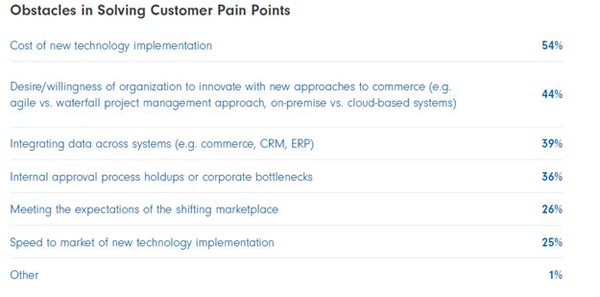B2B Commerce Not Keeping Up with Expectations

The way in which business buyers research, shop and support themselves in their buying journey very much reflects how they shop in their everyday lives - a trend that has given way to "B2B ecommerce," which Forrester predicts will top $1.1 trillion in sales by 2020.
Those catering to business buyers have a complicated road ahead of providing a commerce-like experience for self-service, ordering, omnichannel capabilities, customized pricing, subscription management and, on the other side of the business, in-depth customer profiling and tracking to market to these very savvy buyers relevantly. In fact, CloudCraze recently released its "2017 B2B Digital Commerce Imperative" study finding, unsurprisingly, that B2B businesses selling online struggle to drive significant revenue online because commerce needs are highly complex.
Part of the complexity is providing a consistent experience across channels (sales, customer service, brick and mortar, etc.) with nearly 1 in 5 (18 percent) of businesses treating commerce as a separate channel (like from sales and service). This finding indicates systems aren't "speaking" to one another, which causes fragmented buying experiences.
Other highlights of the report include:
- B2B businesses use commerce to support, not replace sales teams: 90 percent integrate sales with commerce portals.
- Businesses do not use CRM data to their advantage: Only 27 percent of B2B businesses currently support integration between CRM and commerce.
- Top business customer pain points reflect an inability to accommodate complex needs: Respondents say that limited payment options is their customers' biggest obstacle (37 percent) followed by a lack of order replenish capabilities at 30 percent.









